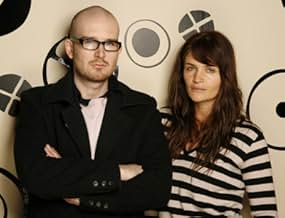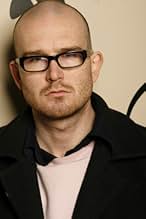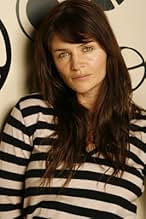Allegro
- 2005
- 1 Std. 28 Min.
Füge eine Handlung in deiner Sprache hinzuFamous pianist Zetterström returns home to his native Denmark, to give a concert, just to find out that the choices he has made in his life have affected his love life greatly.Famous pianist Zetterström returns home to his native Denmark, to give a concert, just to find out that the choices he has made in his life have affected his love life greatly.Famous pianist Zetterström returns home to his native Denmark, to give a concert, just to find out that the choices he has made in his life have affected his love life greatly.
- Regie
- Drehbuch
- Hauptbesetzung
- Auszeichnungen
- 1 Gewinn & 6 Nominierungen insgesamt
- Guard 1
- (as Peder Pedersen)
- Mor Til Dreng
- (as Susanne Storme)
Empfohlene Bewertungen
The story is not complicated at all. It uses a lot of symbolism and the movie writer is obviously trying to trigger our imagination by jumping in time and place (in the same style as many filmmakers before him such as Spike Jonze and Michael Gondry) trying to make the moral statement of the film looking more complex than it really is.
This is a beautiful movie, it has some original touches such as the drawn episode and hopefully you will leave the cinema feeling the same way as I did, with a warm feeling inside and the beautiful music still playing in my ears.
Zetterstrom (well played by Ulrich Thomsen, who appeared in the excellent "Brothers" a few years back) is a concert pianist who has never been able to find true happiness in his life, even after he's met and formed a relationship with Andrea (Helena Christensen), the supposed woman of his dreams. Zetterstrom may be a brilliant musician, but he suffers from an innate distrust of other people, including those who are nearest and dearest to him. When Andrea decides to up and leave him virtually without warning, Zetterstrom imposes a form of amnesia on himself that effectively wipes out all memory of his life prior to her departure. At the same time - and this is where things really get strange - the section of Copenhagen where he was born and raised undergoes a bizarre transformation, suddenly becoming cut off from the rest of the world by some inexplicable supernatural force. Though no one can physically enter this area - now officially re-named The Zone - Zetterstrom is determined to force his way in, when, after ten years of not being able to recall his past, he begins to suspect that his memories may actually be residing in that mysterious place.
Needless to say, this is not your average science fiction movie, nor is it your average tale of lost love. But by combining these two usually distinct genres into a single story, director and co-writer (with Mikael Wulff) Christopher Boe has come up with a work that is both thought-provoking and haunting in its otherworldly strangeness. Zetterstrom wanders through the maze of this "pseudo" city like one in a trance or a dream, searching for clues to his forgotten past and trying to figure out the identity of the strange woman (Andrea) who flits in and out of the shadows of his imagination.
The message of this strange little parable seems to be that even the most tragic events of our lives make up a crucial part of who we are - and that any effort to dull the pain of those events by tucking them away in a corner far out of reach of our memory only winds up diminishing us as a person in the end. Zetterstrom learns that lesson the hard way, but at least he does learn it. It reflects well on the filmmakers that they've presented their case in as uniquely fanciful and absorbing a way as they have in "Allegro."
Zetterstrøm buries himself in his solitary existence of piano-playing, quite literally performing concerts in the dark, or behind screens so that the audience cannot see him. Shadowy figures draw Zetterstrøm back to the zone, unwilling to allow his non-confrontational existence to continue. Zetterstrøm must be made to confront his past.
It's a fascinating film, the narrator lets us know that it's Zetterstrøm's very brilliance which allows him to annihilate himself, that allows him to inoculate himself from reality.
I'm in absolute adoration of films that attempt to make visual metaphors of the human mind, such a film is this (the Zone fulfils this purpose), Tarsem films such as The Cell and The Fall are others. There is no subject more sacred, more revelatory as regards human potential. There's a scene where Zetterstrøm sits and has dinner in an ornately plastered ballroom. The windows and floor are all blacked out with plastic sheeting, and the room is covered in latched boxes loaded on pallets, representing Zetterstrøm's repressed past, there's also a cage with globes of light in, recognising the potentiality of his mind.
When there's narration we also see some very nice cartoons with Zetterstrøm as a child, that's another metaphor I'm very fond of from The Cell, that many of us are still children inside, just wounded, subdued, and with horrid barriers put up. You may have guessed that this movie moved me deeply.
I must say I am very surprised to have not seen much IMDb discussion of this film . I only hope that many more people will soon have the pleasure of its experience.
Wusstest du schon
- Zitate
Zetterstrøm: - But what now... now that I regret?
Tom: - It's a bit late for that, I am afraid.
Zetterstrøm: - So, what do I do now?
Tom: - Well, you can go back to your music, if you want.
- VerbindungenReferenced in iChat mellem Boe og Wulff (2006)
Top-Auswahl
Details
- Erscheinungsdatum
- Herkunftsland
- Offizieller Standort
- Sprache
- Auch bekannt als
- Алегро
- Drehorte
- Produktionsfirmen
- Weitere beteiligte Unternehmen bei IMDbPro anzeigen
Box Office
- Budget
- 10.000.000 DKK (geschätzt)
- Bruttoertrag in den USA und Kanada
- 7.404 $
- Eröffnungswochenende in den USA und in Kanada
- 505 $
- 13. Mai 2007
- Weltweiter Bruttoertrag
- 10.208 $
- Laufzeit
- 1 Std. 28 Min.(88 min)
- Farbe
- Sound-Mix
- Seitenverhältnis
- 2.35 : 1



























